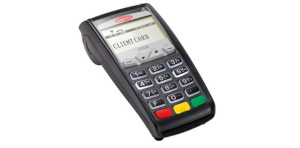October 1st, 2013 by Elma Jane
A payment card transaction involves some or all the following participants:
Acquirers or Payment Processors that market card acceptance services to merchants, obtain transaction authorization, and clear and settle card transactions for the merchant.
Consumers or Cardholders that use payment cards to purchase goods and services. Issuers that market and issue payment cards to consumers and set the terms and conditions for their use; Merchants that accept payment cards for the purchase of goods and services; Network Operator that oversees the system and coordinates the transmission of information and the transfer of funds between issuers and acquirers.
Since the network operators revenue depends on the value of transactions that flow through its network, it tries to ensure the widest possible acceptance among consumers and merchants. In order to increase use and acceptance, the networks use marketing techniques to gain brand recognition, create products that encourage consumer usage and merchant acceptance, and set fees and impose rules on system participants including:
Interchange Fees they are set by the network but are generally paid by acquirers to issuers and are usually reflected in the merchant service fee paid by merchants to acquirers. Interchange fees can be calculated either as a flat fee per transaction, as a percentage of the transaction value, or a combination of both.
Membership Requirements MasterCard and Visa require issuers and acquirers to be regulated financial institutions or be sponsored by a regulated financial institution. Interac also requires issuers to be regulated financial institutions.
Network Switch Fees these fees are charged to acquirers and/or issuers, and are set and collected by the network. They can be calculated either as a flat fee per transaction or as a percentage of the transaction value.
Merchant Acceptance Rule Includes:
No Discrimination Rules which prohibit merchants from encouraging consumers to consider (or steering consumers toward) lower cost payment instruments.
No Surcharge Rules which prevent merchants from charging consumers a fee for the use of a credit card rather than some other credit card or method of payment;
Honour-All-Cards Rules which require merchants that accept any of the networks credit cards to accept all of that networks credit cards (core, high spend and premium high spend in the case of MasterCard), regardless of the applicable interchange fee. The networks have also expanded this rule to include debit cards (i.e. if a merchant accepts one debitcard, they must accept all of that networks debit cards).
With four-party card networks, such as Visa and MasterCard, the card networks seek to maximize the transactions following through them by attacting more card issuers. The networks do this by offering the prospect of interchange income to issuers, thus creating an incentive to increase interchange as much as the market (i.e. the parties paying the interchange fees) will bear.
The ability to use credit cards and debit cards to purchase goods and services rests largely on a behind-the-scenes architecture of procedures, rules and technology that govern how funds and information are transferred between people and institutions in the process of settling accounts, i.e., of ensuring that merchants that sell goods and services get paid by the people who purchase them.
Posted in Best Practices for Merchants, Credit card Processing, Electronic Payments Tagged with: accept, account, acquirer, authorization, cardholder, credit card, debit, fees, interchange, issuer, merchant service, merchants, network, payment, processor, Rates, transaction
September 30th, 2013 by Elma Jane
Facebook this week began testing a new feature dubbed “Autofill with Facebook” that aims to simplify mobile purchases by filling in customers’ credit card information for them, thus eliminating the need to type it in each time. This “Autofill with Facebook gives people the option to use their payment information already stored on Facebook to populate the payment form when they make a purchase in a mobile app,” Facebook spokesperson told the E-Commerce Times. “The app then processes and completes the payment.” The feature “is designed to make it easier and faster for people to make a purchase in a mobile app by simply pre-populating your payment information.”During the test period, which began Monday evening, the feature will show up only to Facebook users who have already provided credit card information to the social network — in other words, those who have made in-game purchases or bought gifts for friends.
Facebook has partnered with PayPal, Braintree and Stripe as financial partners on the service, which is initially available only on the e-commerce iOS apps JackThreads and Mosaic.
Ironing Out the Wrinkles Autofill with Facebook isn’t a move to compete with PayPal and credit card companies, but to complement payment services by adding a layer for convenience, much the way Facebook, Google and Amazon have created a single login that works across a network of websites.
“Facebook is not interested in being a payments company,” an analyst, told the E-Commerce Times. “Instead, it is aiming to be the entity that irons out bumps in the payment process — something it is well-positioned to do. “With Autofill, Facebook will act as the lubricant that makes the commerce experience more seamless, providing a number of benefits to all stakeholders.”
Partners in the deal ensure that Facebook will succeed in Autofill with Facebook, it doesn’t care about payments, it cares about reaping the benefits that come from making the payment experience better.”
‘The Potential to Be Lucrative’ There could be significant financial benefits as well. “This approach has the potential to be lucrative for Facebook in that it will help plug the mobile conversion gap,” McKee suggested. “If Facebook can prove to its partner merchants that an ad on its site led to a purchase, the validity of its platform can easily be proven. Ideally, this will help convince other companies to advertise with Facebook as well.”
Taking it a step farther, Facebook will also gain transaction data, which McKee believes has considerable value. “Facebook can leverage transaction data with what it already knows about us for precision ad targeting. This will increase the relevance and placement of ads on Facebook.”
The Security Factor While many mobile customers will appreciate the Autofill function, security issues still lurk in the back of every consumer’s mind. Yet while privacy concerns have been an ongoing issue for Facebook, it has a good track record where security is concerned. “Facebook has been relatively incident-free when it comes to security breaches.” “However, this is more a problem of consumer perception. Will consumers feel comfortable storing their payment credentials with a social media platform?
“Facebook is already approaching ‘big brother’ status, and this takes it one step further.” “To succeed, Facebook must provide visibility into what it plans to do with transaction data.”
‘It’s a No-Brainer’ The convenience factor, meanwhile, could be a compelling one for consumers. “It’s no-brainer useful to mobile users…who wants to enter their credit card on a mobile phone more than once?” “It could be more secure than mobile payment alternatives.” If Facebook gets past its hurdles, it will also succeed in building strengths in areas where it has been lacking to date.
“Right now Facebook isn’t super strong at the conversion side of e-commerce.” “Autofill will give them a lot of data about purchases, which might help them remedy that.”
‘Strategic Smarts and Ambition’ As for those benefits to Facebook, there are potentially many. One example,”Autofill admits them to the online payments world.”
“This is another example of the strategic smarts and ambition of Zuck.” “One gets the sense that he wants to be a major competitor for everything online.”
Posted in Credit card Processing, Credit Card Security, Digital Wallet Privacy, e-commerce & m-commerce, Electronic Payments, Mobile Payments Tagged with: Amazon, commerce, credit card, e-commerce, Facebook, google, media, mobile, mobile phone, network, payment, payment information, payment services, PayPal, platform, processes, secure, social, transaction
September 27th, 2013 by Elma Jane
Mobile Payment Bandwagon
Just this month, September 2013, a number of British retailers announced their partnership with smartphone payment application Zapp, expected to launch summer 2014. Long before that, in November 2012, global coffee chain Starbucks launched a mobile payment system using Square Wallet, allowing customers to pay for their coffees with a simple scan of their smartphone. In China, the mobile payment market tripled in size over the last year, with a growing number of retailers jumping aboard the e-payments trend. Clearly, mobile payments are the new face of commerce…both for consumers and, increasingly, within a B2B setting as well. It may not be long until every type of payment…from mortgages and business loans to utilities bills and income tax…is made through mobiles.
Though it’s a trend that’s now spreading across the globe, the rise of mobile payments can be directly traced back to Africa. It’s an example of how unique conditions give rise to innovative solutions, and how those innovations catch on. Here’s a brief look at the rise of mobile payment technology and at the role Africa has played in its success.
Africa Gets There First – this notion of exchanging funds through a mobile phone really took off in Africa. When M-Pesa was launched by Safaricom in Kenya in 2007, it was a simple solution to issues specific to the region. Kenyans who lived far from banks or couldn’t afford banking fees were given the opportunity to send and receive payments through SMS messages. M-Pesa answered these specific problems, but the concept behind the service has proven to have a far broader reach. After achieving success in Kenya, M-Pesa launched in Tanzania in 2008. Despite getting off to a slow start, the mobile payment services now has 5 million Tanzanian subscribers. It has also launched in South Africa, Afghanistan, India and there’s plans to roll it out in Egypt at some point in 2013.
At the heart of M-Pesa’s success has been efficiency and security. Removing the need to travel to a bank…or even the need to log into online banking…has made the process of transferring funds far easier and faster. Eliminating the need to write a cheque, use cash or enter credit card details has made the process far more secure. Increased efficiency and improved security are qualities that everyone…not just those in the developing world…stands to benefit from.
Thus, though today’s technology has adapted and built upon the M-Pesa model, the world still has Africa…Kenya in particular…to thank for starting the mobile payment revolution.
Posted in Financial Services, Mobile Payments, Smartphone Tagged with: banking, broader, credit card, e-payments, efficiency, fees, global, innovations, innovative, messages, mobile, payment, retailers, Security, services, smartphone, sms, solution, travel
September 26th, 2013 by Elma Jane
Asta‘s Global Convention held in Miami FL, September 16-19, 2013 with National Transaction Corporation’s President, Mr. Mark Fravel in the Guest List.

ASTA American Society of Travel Agents and Agencies
With ASTA’s Global Convention held last September 16-19, 2013 in Miami Florida, National Transaction Corporation accessed to a powerful and inspirational collection of unrivalled 36 speakers including…Hilary Rodham Clinton, Former Secretary of State and Former U.S. Senator from New York. With high quality travel industry content and peer-to-peer networking opportunities, National Transaction Corporation’s Business has moved forward through these thought provoking sessions, breakouts and networking events.
Headed by NTC’s President, Mr. Mark Fravel, together with his Account Executives; Chelsie Fravel, Megan Fravel and Richard Delos Santos, they actively attended all the sessions that are involved in the Convention. National Transaction Corporation handed out around 300 Business Cards with Micro Screen Cleaner as part of their promotional giveaways in their very own NTC booth.
With the opportunity for over 1,400 ASTA CEOs, Presidents and Agency Owners that has come together with leading travel suppliers, the Convention influenced critical issues of our day. Engaged in instructive and new media technologies that impact our industry and shared innovative ideas with like-minded professionals. NTC a Credit Card/Electronic Payment Processing Merchant Account Services get to meet key people for Sabre, a Global Distribution System which products and services enable agencies to streamline accounting processes, build a powerful marketing database, and send targeted marketing pieces with measurable results. With the convention GUEST LIST which includes NTC and other Business Agencies and Companies like Car Rental, Cruise, Hotel, Insurance, Marketing Magazine, Travel, and a lot more are the individuals in which you want to meet and build your organization’s future.
With the ASTA Global Convention, it unites members and travel industry professionals to create a conference for the most influential buyers in the industry. As the leading advocate for travel agents, the travel industry and the traveling public, ASTA and its members represent 80% of all travel sold by travel agencies in the United States.
The ASTA Global Convention is reaching new heights through innovative education, captivating luminaries and diverse networking opportunities. ASTA continues to promote travel around the globe and to remind the traveling public of the value of professional services provided by travel agents and tour operators.
Posted in Travel Agency Agents Tagged with: agencies, agency, agent, airline, ASTA, car rental, clinton, credit card, cruise, hillary, hotel, Mark Fravel, merchant account, National Transaction Corporation, Processing, travel
August 16th, 2013 by Admin
 Square credit card processing service was fined $507,000 by Florida’s Office of Finance Regulation for operating an electronic payment processing service without a money transmission license. Some may remember the same treatment in Illinois in March of this year. The order covers two years of operation and processing including Square Register, stored value and prepaid access credit card services.
Square credit card processing service was fined $507,000 by Florida’s Office of Finance Regulation for operating an electronic payment processing service without a money transmission license. Some may remember the same treatment in Illinois in March of this year. The order covers two years of operation and processing including Square Register, stored value and prepaid access credit card services.
Square was granted a money transmission license after it paid the fine via wire transfer and is now in compliance. Square neither admits or denies any wrongdoing. Although it’s an emerging field the Florida based fines show that adhering to state laws is a tricky situation that needs extra scrutiny on the processors end. Due to the state by state nature of the laws, credit card processing companies find themselves complying with each state’s independent regulation laws.
In a statement from Square.. “We worked with Florida to resolve our application and receive our license to operate as a money transmitter in the state, We look forward to continuing to help merchants across Florida grow their business with Square.”
Posted in Credit card Processing, Electronic Payments, Mobile Payments, Mobile Point of Sale Tagged with: account, credit card, Florida, merchant, merchants, Processing, Square
August 16th, 2013 by Admin
Today the PCI Security Standards Council (PCI SSC), an open, global forum for the development of electronic transaction security standards published PCI Data Security Standard (PCI DSS) and Payment Application Data Security Standard (PA-DSS) 3.0 Change Highlights as a preview of the new version of the standards coming in November 2013. The changes will help companies make PCI DSS part of their business-as-usual activities by introducing more flexibility, and an increased focus on education, awareness and transaction security as a shared responsibility with merchant account holders.
The seven-page document is part of the Council’s commitment to provide as much information as possible during the development process and eliminate any perceived surprises for organizations in their PCI credit card security planning. Specifically, the summary will help PCI Participating Organizations and the assessment community as they prepare to review and discuss draft versions of the standards at the 2013 Community Meetings in September and October.
Changes to the standards are made based on feedback from the Council’s global constituents per the PCI DSS and PA-DSS development lifecycle and in response to market needs. Key drivers for version 3.0 updates include: lack of education and awareness; weak passwords, authorization, verification and authentication challenges; third party payment security challenges; slow self-detection in response to malware and other threats; inconsistency in assessments.
“Today, most organizations have a good understanding of PCI DSS and its importance in securing credit card data during transactions, but implementation and maintenance remains a struggle – especially in light of increasingly complex business and payment technology environments,” said Bob Russo, PCI SSC general manager. “The challenge for us now is providing the right balance of flexibility, rigor and consistency within the standards to help organizations make payment security business-as-usual. And that’s the focus of the changes we’re making with version 3.0.”
Based on feedback from the industry, in 2010 the Council moved from a two-year to a three-year standards development lifecycle. The additional year provides a longer period to gather feedback and more time for organizations to implement changes before a new version is released. Version 3.0 will introduce more changes than version 2.0, with several new sub-requirements. Proposed updates include:
- Recommendations on making PCI DSS business-as-usual and best practices for maintaining ongoing PCI DSS credit card compliance
- Security policy and operational procedures built into each requirement
- Guidance for all requirements with content from Navigating PCI DSS Guide
- Increased flexibility and education around password strength and complexity
- New requirements for point-of-sale terminal security
- More robust requirements for penetration testing and validating segmentation
- Considerations for credit card data in memory
- Enhanced testing procedures to clarify the level of validation expected for each requirement
- Expanded software development lifecycle security requirements for PA-DSS application vendors, including threat modeling
Note that these updates are still under review by the PCI community. Final changes will be determined after the PCI Community Meetings and incorporated into the final versions of the PCI DSS and PA-DSS published in November.
The change highlights document with tables outlining anticipated updates is available on the PCI SSC website:https://www.pcisecuritystandards.org/security_standards/documents.php
The Council will host a webinar series for the PCI community and the general public to outline the proposed changes. To register, visit: https://www.pcisecuritystandards.org/training/webinars.php
“PCI DSS and PA-DSS 3.0 will provide organizations the framework for assessing the risk involved with technologies and platforms and the flexibility to apply these principles to their unique payment and business environments, such as e-commerce, m-commerce, mobile acceptance or cloud computing,” added Troy Leach, PCI SSC chief technology officer.
PCI DSS and PA-DSS 3.0 will be published on 7 November 2013. The standards become effective 1 January 2014, but to ensure adequate time for the transition, version 2.0 will remain active until 31 December 2014.
For more information and to register for the 2013 Community Meetings, please visit:https://www.pcisecuritystandards.org/communitymeeting/2013/
About the PCI Security Standards Council
The PCI Security Standards Council is an open global forum that is responsible for the development, management, education, and awareness of the PCI Data Security Standard (PCI DSS) and other standards that increase payment data security. Founded in 2006 by the major payment card brands American Express, Discover Financial Services, JCB International, MasterCard Worldwide and Visa Inc., the Council has more than 650 Participating Organizations representing merchants, banks, processors and vendors worldwide. To learn more about playing a part in securing payment card data globally, please visit: pcisecuritystandards.org.
Connect with the PCI Council on LinkedIn: http://www.linkedin.com/company/pci-security-standards-council
Join the conversation on Twitter: http://twitter.com/#!/PCISSC
Posted in Credit Card Security, Digital Wallet Privacy, Mobile Payments, Mobile Point of Sale, Point of Sale Tagged with: credit card, DSS, e-commerce, m-commerce, mobile, PA-DSS, PCI Compliance, Security, transaction

Ingenico iCT220 Credit Card Reader
Built on the Telium2 software platform, the iCT220 from Ingenico offers an operating system providing a secure standardized architecture for next generation Point of Sale or POS credit card reader terminals. Telium2 reinforces electronic payment security and integrates added features such as deleting sensitive data and terminal cut off. Dual processor architecture increases digital transaction speed. It also accommodates a wide range of electronic payment types. Read more of this article »
Posted in Electronic Payments Tagged with: credit card, electronic payment, point of sale, POS, Processing, terminal
As a society, our smartphones are increasingly becoming a more important in our daily lives. Already replacing watches, alarm clocks, wallets and calendars today we carry our smartphones with us everywhere, including the bathroom. While smartphone users are traveling everywhere with their smartphones, are they actually booking travel with their smartphones? eMarketer asked that very question in a survey of 1,200 internet users and asked about their travel booking habits on the internet. The responses indicate that 40% of digital travel researchers will use their smartphones and tablets and mobile payments to complete travel bookings. Read more of this article »
Posted in Merchant Services Account Tagged with: agencies, agent, agents, credit card, e-commerce, gateway, ipad, Iphone, laptop, merchant account, notebook, smartphone, tablet, ticketless, travel
Ron Klien, also known as the “Grandfather of Possibilities” is an exceptional entrepreneur, business consultant, mentor and inventor. “I solve situations by simplifying them”, says Klein. At 77, the Philadelphia native is the inventor of the magnetic strip found on nearly all of today’s credit cards. The “validity checking system” as his patent reads is a magnetic strip on the back of a plastic card that functions much like a cassette recorder. Rather than recording sounds the magnetic strip records characters that can be ‘played’ into a credit card swipe reader. Read more of this article »
Posted in Uncategorized Tagged with: credit card, electronic device, magnetic strip, MasterCard, merchant account, process, reader, swipe reader, terminal, Visa MasterCard American Express

Cyber Crime InfoGraphic by Vericode.
Today anyone can have an e-commerce web site set up in mere minutes. There are a lot of open source e-commerce solutions that allow a web site owner to establish a site very easily, some require just a few clicks to get going. Once you have your color scheme chosen and your navigation all set a decision on how to accept payments is inevitable. e-commerce payment gateways allow your site to connect securely to a payment processor to accept your electronic transactions. These digital transactions can be used by hackers to target your site and your customers credit card information and much more. Whether the data targeted is stored on the merchants network or on the customers mobile device, business need to implement a cyber security strategy. Read more of this article »
Posted in Credit Card Security Tagged with: credit card, DSS, e-commerce, electronic, fraud, gateway, Malware, payment, PCI, Phishing, Processing, Security, Skimming, smartphone, SMSishing, tablet








